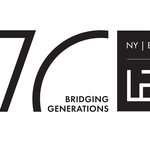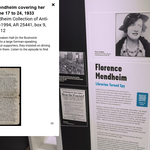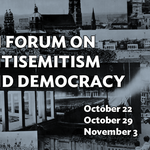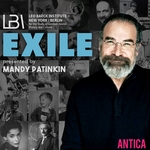A Conversation with Henry Kaufman on Scholar Rescue

- Author
- David Brown
- Date
- Tue, Oct 3, 2017
The LBI archives are full of references to scholars who escaped the Nazi threat with the aid of foreign benefactors. The political philosopher Hannah Arendt, the sociologist Werner Cahnman, and the writers Franz Werfel, Hans Sahl, and Lion Feuchtwanger are among the hundreds saved by the American journalist Varian Fry working in Marseille. The list of over 330 scholars placed by the Institute of International Education (IIE) in an effort helmed by Edward R. Murrow resembles a list of LBI archival collections. Illustrator Hugo Steiner-Prag landed at NYU, a position was found in Berkeley for historian Ernst Kantorowicz, and the art historian Hermann Gundersheimer took a position at Temple University.
Today, another generation of benefactors is continuing this work through some of the same institutions. Economist Henry Kaufman was too young to have become a scholar already when he left his home in Germany for the United States in 1937, but the experience made him acutely aware of the dangers faced by academics whose work, political views, or ethnic backgrounds make them targets.
An early graduate faculty meeting at the New School for Social Research, which took in over 180 refugee scholars from Central Europe. Those pictured include Hans Staudinger, Hans Speier, Frieda Wunderlich, Arthur Feiler, Gerhard Colm, Max Ascoli, Fritz Lehmann, Albert Salomon, Kurt Riezler, Erich Hula, Carl Mayer, Alfred Kahler, Leo Strauss, Horace M. Kallen, Felix Kaufmann, Clara W. Mayer, and Max Wertheimer. Published in the New School Bulletin, April 6, 1959, from the Frieda Wunderlich Collection, AR 3230.
In 2002, Kaufman and another German-Jew who emigrated as a child, the psychiatrist and investor Henry Jarecki, helped to establish a multi-million dollar endowment for a dedicated fund at the IIE that has placed over 700 politically endangered scholars in over 50 countries across the world over the last 15 years.
“I think all human life, including all people of various degrees of knowledge, deserves to be rescued, but there is something special about scholars,” said Kaufman in an interview. “If we don’t have scholars, progress by mankind is going to be very slow.”
The profile of endangered scholars is much different today than it was when the primary threat was fascism. “In the 1930s, the scholars who were threatened in Germany or France had already established an international reputation,” said Kaufman.
Today, most scholars facing political threats are less prominent and are based in developing nations. Over 70 percent of the scholars placed by the IIE since 2002 hail from the Middle East and North Africa. In 2014, after the start of the Syrian conflict and the rise of the Islamic State, the IIE reported a more than 240 percent increase in the number of applications.
While the significant impact of the Central European refugees on American institutions of higher learning from Princeton’s Institute for Advanced Studies to the New School for Social Research is well-known, Kaufman says it’s too early to say what scholar rescue will mean for higher learning in the 21st century. “Some scholars bring to the students whom they teach a familiarity with the country that they come from that the student wouldn’t otherwise get,” he said. “In other instances, they offer expertise about their country, such as in the fields of archeology or religion.”
For the most part, host countries and institutions understand that they stand to benefit from accepting endangered scholars. “We initially had some problems coping with the immigration views of the new administration,” said Kaufman. “But we have been able to continue to bring foreign students to the US with the correct vetting, and so far we’ve been very fortunate.”
Kaufman remains deeply involved in the work of the fund, reviewing applications and working to convince universities around the world to create positions for scholars in need of rescue. “I am preparing for the next meeting of the committee, and I have 88 applications on my desk to review,” he said.
Latest News





